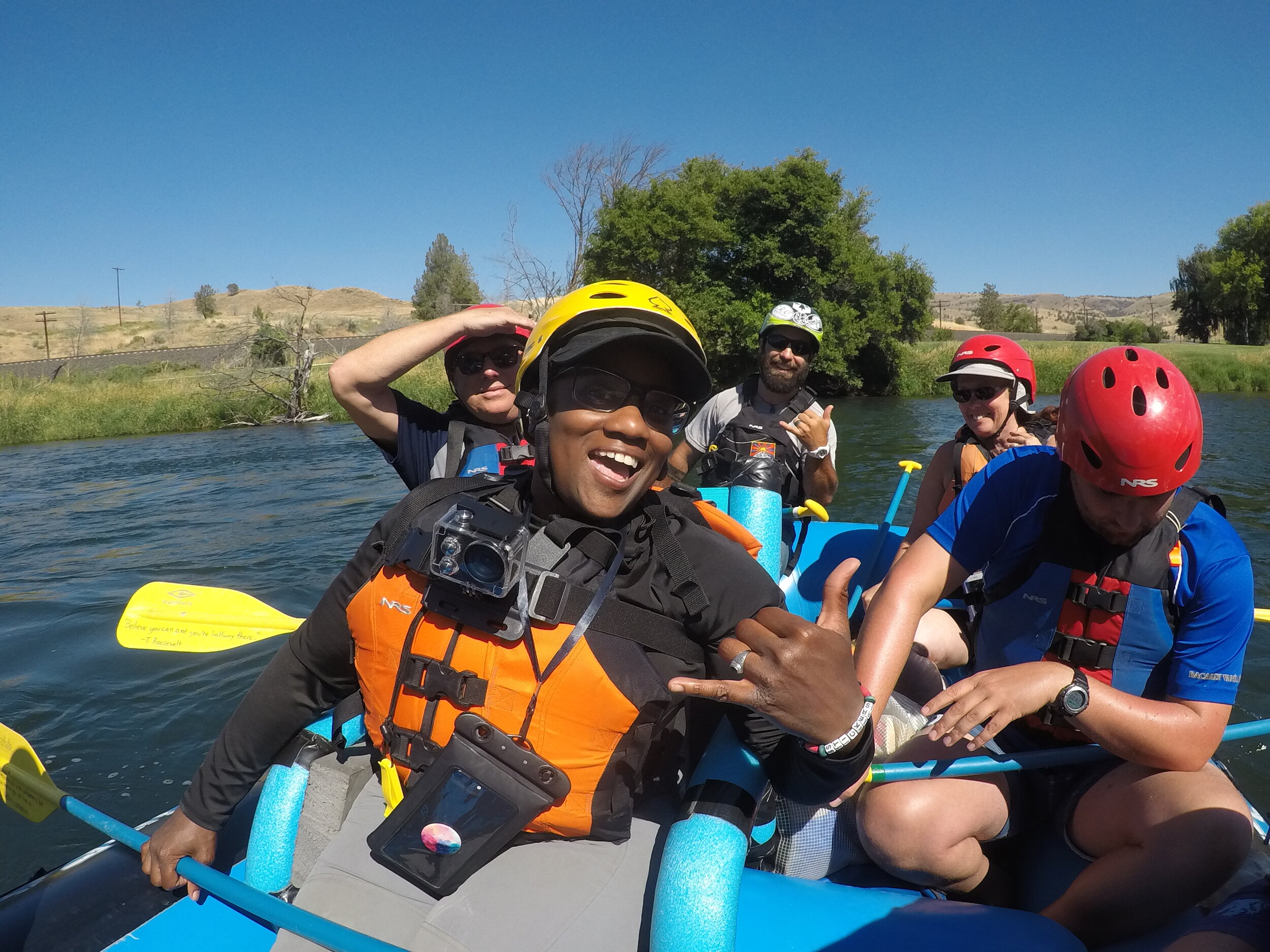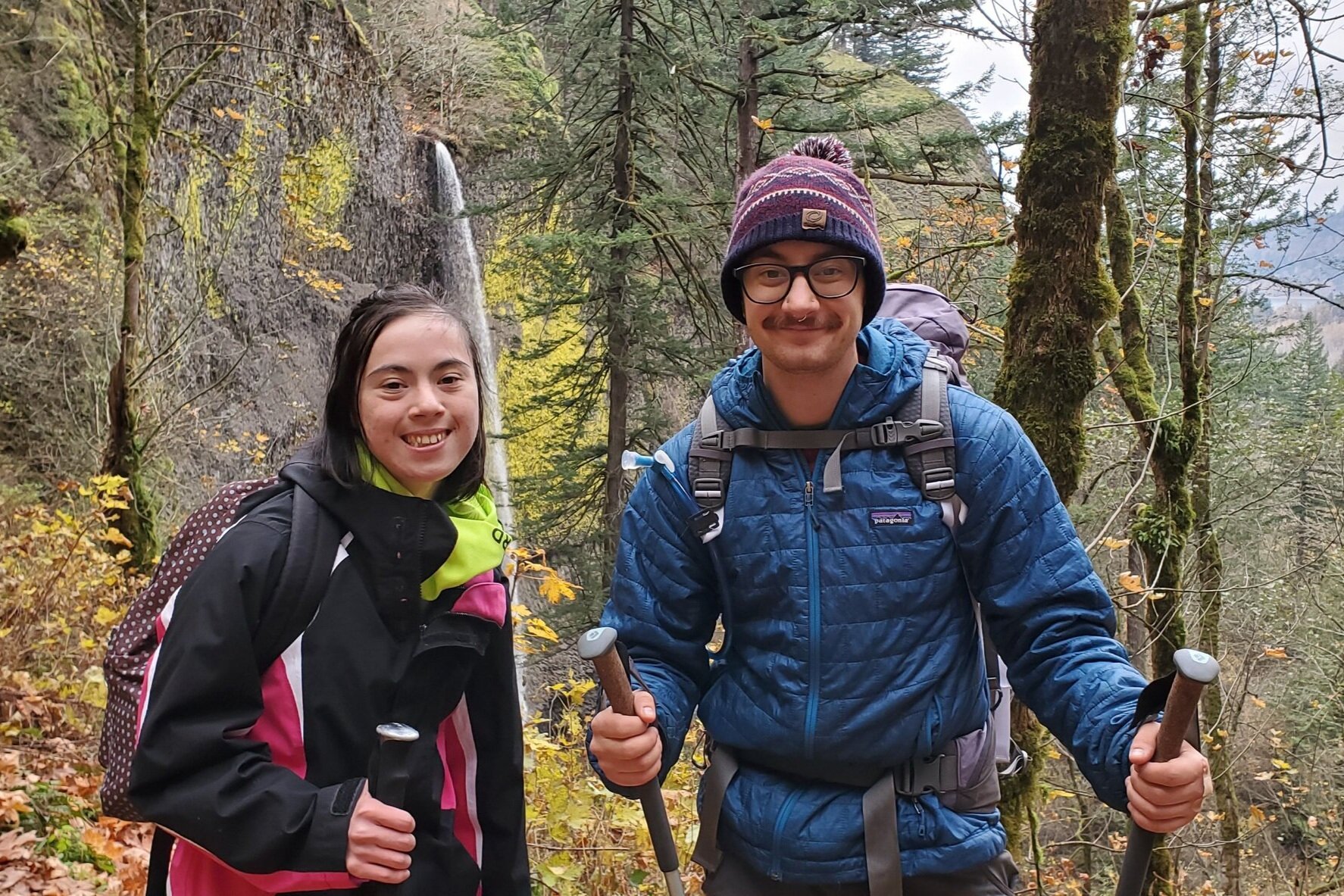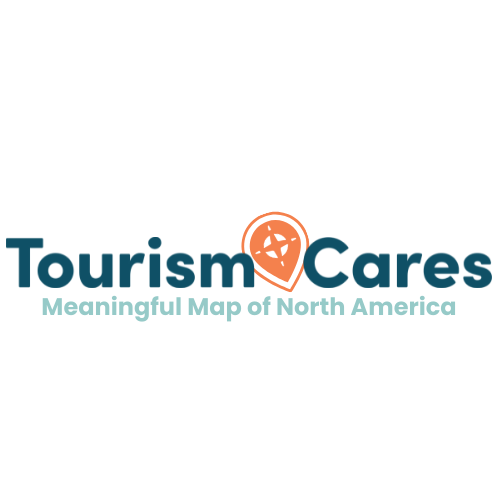Making A Map | A Guest Blog
A guest blog by Tourism Cares Intern, Josephine Rohrer
“So, what do they do?”
This was a common question I received from family and friends alike when I was first selected as the Tourism Cares Program and Advancement Intern for the summer.
My response was not a descriptive one either:
“A non-profit that makes travel better.”
Yes! Super descriptive, Josephine, thank you. I was lost in the sea of acronyms and buzzwords, such as sustainability and social enterprise, trying to make sense of it all. I was greeted with open arms and a plethora of resources. Every day I worked alongside this staff, my learning never seemed to slow down.
Where I spent most of my time was working on developing the Meaningful Travel Map of North America. The organizations we are building relationships with for the Meaningful Map are truly inspiring, and I got the chance to get to know one of them a little better.
Adventures Without Limits (AWL) is an outdoor recreation program that has offered inclusive and adaptive outdoor recreation since 1995. They strive to provide opportunity and adventure for all people, regardless of their ability levels, socio-economic status, gender, ethnicity, or age.
I got the opportunity to speak with Cody Bliss, who currently serves as the Program Director at AWL. He helps with developing programming, coordinating logistics, and sometimes even implementing and operating trips.
He gave me some more insight into the organization in a short interview:
Q: How did AWL get started / what was the initial idea behind it?
A: The idea was really through listening to the local community. There was a need for programming for students in the Special Education department at the local schools in Forest Grove. Once summer came, the students who needed support were left to fend for themselves. It left them in classrooms, while their peers had access to camps and similar activities. AWL stemmed from the need within a subset of the student population that were not having those traditional summer programs. It started within a niche and has since expanded to include year-round programming for other underserved and historically underrepresented groups as well.
Q: What makes AWL different from a traditional recreation program?
A: We have a staff and the equipment to accommodate participants of all different ability backgrounds. Regardless of socio-economic background, skill level, physical needs, or any physical or intellectual disabilities that might need special accommodations, we are set up to have people of all different backgrounds come out and have the chance to get into the outdoors and have these experiences. I think that is what really sets us apart because a lot of other outdoor rec programs cater to folks that typically have the resources, the knowledge, and the ability level to do those activities - and AWL accommodates everyone. We provide inclusive programming, where people of all different backgrounds and ability levels can get together and have this common shared, positive experience in the outdoors.
Q: What are some examples of the kind of accommodations AWL makes?
A: It could be as obvious as staff training and knowledge - we typically have a really high guide to participant ratio. We don't necessarily offer one-on-one support but we have a high number of guides so participants that need special accommodations have plenty of trained staff ready to assist. We have physical therapists and occupational therapists that have merged those skills into the outdoor recreation world.
Say for instance, we are working with a participant who has a spinal cord injury, we can actually adapt the program to that individual (whether that is equipment, where we go, or the structure of the programming in general).
Another example is that we partner with an organization called Oral Hull, which is a group of visually impaired individuals (mostly youth) who will come out and go rock climbing with us or paddling. Our staff knows how to best communicate with these participants based on their needs, ability levels, and how they are experiencing the environment. Imagine that you are working with individuals that have never been outside. Now take away that person's ability to see the trail, to watch where they are walking, etc. We make sure that everyone is not only safe but getting the highest quality experience. For climbing, we will have adaptive climbing gear. For kayaking, we will have equipment with extra stability or extra padding.
Q: Do you have a personal favorite experience while working with AWL clients?
A: Back to the example of the visually impaired group rock climbing- it is such an experience to see these kids come to a brand new environment and truly trust us and trust the experience. We know that they are stepping out of their comfort zones every time. To see them climb in a way that is different from other groups is really inspiring and an awesome opportunity. We also work with at-risk youth, so whether they are in the foster care system or from domestically violent backgrounds, or from a low socio-economic background, this is probably my favorite group to work with. These participants often do not get a chance to just be kids. They are worried about adult problems. Most kids don’t have to worry about where their next meal is coming from or where they are going to stay tomorrow night. At a very young age, they face the realities of lacking these basic human needs. When we take them out on a trip, it’s an opportunity for them to be kids again, even for one day.
Q: How do you think people who are traveling can make a difference through outdoor recreation?
A: Even before I was at AWL, I was working with a lot of international and domestic travel experiences. This stemmed from the idea that travel can have such an amazing impact both personally and at a societal level. I think there is a lot of growth opportunity through travel and outdoor experiences. It really allows people to be put in these, for lack of better words, uncomfortable situations, where they are faced to explore their comfort zones. They can see what they are capable of and see what other parts of the world are like.
I think that is one way: that personal level of growth, but I also think there is a lot of stewardship in conservation actions that can stem from travel and being outdoors. Going back to that cliche quote: “Protect what you love.” Caring about other parts of the world, whether that is an hour outside of your home town or a whole different country, is a luxury to do, right? A lot of people do not have that luxury. Providing people with these meaningful and engaging experiences in the outdoors opens that window into a different aspect of life, which really instills that “protect what you love” mindset. Once you have those positive experiences in natural spaces, it sort of gets ingrained in you. It becomes something that you continue to care about as time goes on. I think there are a lot of amazing benefits that come from these experiences, whether it is natural spaces or different cultures and communities.
Q: Any advice on how travel companies can help their travelers make the most of these outdoor recreation programs? How can travelers make the most of an outdoor recreation trip?
A: The word “adventure” nowadays gets thrown around a lot, people think they have to go to a certain place to get that experience. In reality, adventure comes down to perspective and your mindset. Having the mentality of having an open and adventurous spirit is the core of [making the most of] it. If someone is looking to go have an “adventure” or go outdoors, just be open and adaptable. Be willing to say yes to these new experiences that are coming your way! It’s also important to understand that things will not always go smoothly as anticipated- and that is part of the experience! Especially for those looking to go into natural spaces, make sure to view outdoor recreation as more than just “fun.” When you get on a bike or get on a raft, these experiences are more of a vehicle for some of those broader implications and objectives that we are all trying to accomplish as humans. Take a chance to slow down. Check out your surroundings, talk to the local communities, ask questions, and be curious. That’s when the magic happens.
Q: Anything else you would like to add?
A: Sometimes there is confusion about AWL and who we serve. While we are an inclusive outdoor rec organization, we do accept folks from all different backgrounds. Anytime someone travels with us or goes on a trip with us, you are supporting our mission of providing inclusive outdoor rec experiences. Anyone is welcome to join us on these programs.
Q: What are your thoughts/opinions about the Meaningful Travel Map with Tourism Cares?
A: I think it’s super cool! We are a small nonprofit with a small team and we rely a lot on outside funding and support. So anytime someone reaches out to us, we are definitely appreciative of the extra outreach we can get.
So to our readers - what can you do?
If you are ever in the Oregon area - or provide tours within Oregon, work with organizations like AWL! They touch the hearts and minds of all they work with, similar to many of the wonderful organizations featured on our Meaningful Travel Map. Access it HERE to help find more experiences, products, and services that make an impact. Adding these opportunities into your itineraries generates positive outcomes for these communities and your groups will get to make a difference on their vacation. The decisions you make when building a tour can help change the world through travel!
As for me?
I’ve now entered my Junior year at Clemson University, studying Economics and Spanish. I hope to continue my journey in learning about the tourism industry, one day experiencing it firsthand. Joining the Peace Corps may also be in the near future. But after this internship, I’ve become aware of social enterprises within my day-to-day life and conscious of my purchases. Through learning more about AWL, I hope you all have become even a little bit more cognizant of these issues too.
And finally, I want to pass on my thanks to the Tourism Cares staff. Thank you for an incredible summer and how much you have given me :)





